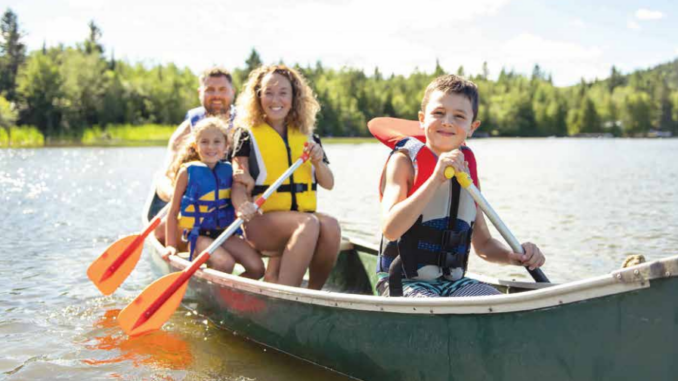
More than 11 million recreational boats and vessels are registered in the U.S. That makes two things clear: Americans take boating seriously and enjoy their time on the water; second, all those watercraft can create hazards.
According to the U.S. Coast Guard, there were 4,291 boating incidents recorded in 2017 (the most recent figures available) resulting in 658 deaths, 2,629 injuries and $46 million in damage. These statistics make boating safety a clear priority for anyone enjoying a ride on any craft, from motorboats to pontoons, kayaks to wakeboarding. Here are some tips from the Coast Guard and the National Safety Council to help your next trip aboard go smoothly and safely.
LIFE JACKETS
Life jackets are essential to boating safety. The U.S. Coast Guard reports 76% of boating deaths in 2017 were due to drowning, and 84% of the victims were not wearing a life jacket. Regulations vary, but it’s a good idea to wear a life jacket any time you’re on a boat — even if you’re a good swimmer. When people fall off a boat, they can easily become disoriented or worse, knocked unconscious. Life jackets keep your head above water so you can breathe and help you float and be more easily rescued. Here’s some tips for choosing and wearing a life jacket: • Choose the right life jacket for the activities you will be doing. Double check to make sure the life jackets and look for the tag to ensure they are Coast Guard approved. • Make sure the jacket is a proper fit for your size and weight. • Make sure the jacket is properly fastened.
REDUCE RISKS
Here are some measures to take to insure your boat and crew are safe:
Sign up for a free vessel safety check. Both the U.S. Coast Guard Auxiliary and the United States Power Squadrons have certified vessel examiners who will perform a free Vessel Safety Check at your boat, at a time of mutual convenience. There is no charge, and no consequences if you don’t pass. The goal is to help make boating as safe as possible for you, your family and your friends, through education.
Don’t drink and operate a boat. Every boater needs to understand the risks of boating under the influence of alcohol or drugs. It is illegal to operate a boat while under the influence of alcohol or drugs in every state. The Coast Guard also enforces a federal law that prohibits BUI.
Take a safety course. Boating safety courses are offered throughout the country for all types of recreational boaters and for boaters of all ages. Qualified volunteer organizations, such as the U.S. Coast Guard Auxiliary, U.S. Power Squadron and others sponsor many courses, and many state boating agencies also provide classes.
File a float plan. Filing a float plan isn’t just for commercial ships and large vessels. According to the Coast Guard, a float plan is equally effective for the owner of a 10-foot kayak or flat-bottom skiff as it is for a 48-foot express cruiser, or a 90-foot sport-fishing vessel or luxury yacht. A float plan makes it easier for rescue crews to locate you in the event of an emergency and includes detailed information about your boat, the people on board and your planned excursion.